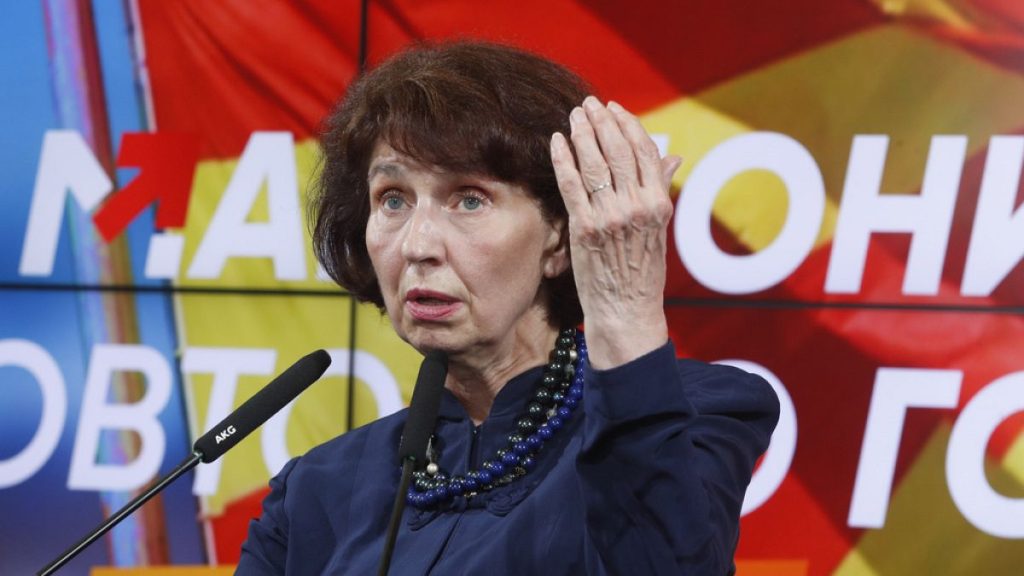North Macedonia experienced a significant political shift to the nationalist right-wing on Wednesday, as the ruling centre-left SDSM suffered historic losses in presidential and parliamentary elections. The country elected its first female president, Gordana Siljanovska-Davkova, a 70-year-old law professor supported by nationalist conservatives, who won with nearly 65% of the vote in the presidential runoff. In contrast, the ruling party’s candidate, Stevo Pendarovski, secured just over 29% of the vote. Siljanovska-Davkova’s victory was supported by the right-wing VMRO-DPMNE party, which capitalized on public dissatisfaction with the slow pace of EU integration and economic stagnation.
The parliamentary race also saw a victory for VMRO-DPMNE and its coalition, leading with nearly 43% of the vote, while the SDSM-led coalition struggled to maintain second place. The conservative landslide win in both the presidential and parliamentary contests sets the stage for negotiations over parliamentary control. SDSM leader Dimitar Kovachevski acknowledged his party’s defeat and announced his resignation, paving the way for new leadership. The election campaign focused on North Macedonia’s EU accession progress, rule of law, corruption, poverty alleviation, and economic growth. VMRO-DPMNE leader Hristijan Mickoski emphasized fighting corruption as a top priority for the incoming conservative-led government, promising accountability and reform.
The victory of Siljanovska-Davkova and the conservative right-wing in North Macedonia’s elections signals a turning point in the country’s political landscape. The electorate’s discontent highlighted the urgency for accountability and reform, with VMRO-DPMNE pledging to hold accountable those involved in corruption and criminal activities. The party’s comeback after suffering setbacks due to scandals involving its former leader, Nikola Gruevski, who is currently living in exile in Hungary, underscores the resilience and adaptability of nationalist conservative forces in the country. The public’s dissatisfaction with the ruling centre-left’s performance in addressing issues such as EU integration, corruption, and economic stagnation played a significant role in the outcome of the elections.
North Macedonia’s path to EU membership has been hindered by challenges and setbacks since 2005, primarily due to pushback from neighboring countries. A Greek veto over the country’s name, followed by objections from Bulgaria over historical and linguistic claims, have delayed North Macedonia’s negotiations with the EU for years. The nationalist conservative victory in the recent elections reflects a desire for change and a shift towards a more assertive approach in addressing these challenges and moving closer to EU integration. The new leadership will need to navigate these obstacles, build consensus, and prioritize reforms to strengthen the country’s candidacy for EU membership.
The historic milestone of electing North Macedonia’s first female president, along with the nationalist right-wing’s significant gains in both presidential and parliamentary elections, represent a defining moment in the country’s political history. The conservative-led government will need to address pressing issues such as corruption, economic stagnation, and EU integration, while also navigating challenges posed by neighboring countries. The electorate’s mandate for accountability and reform will shape the new government’s agenda as it seeks to deliver on promises of progress and change. The outcome of the elections underscores the importance of addressing public grievances and building a stronger foundation for North Macedonia’s future as it strives to deepen ties with the EU and strengthen its democratic institutions.













